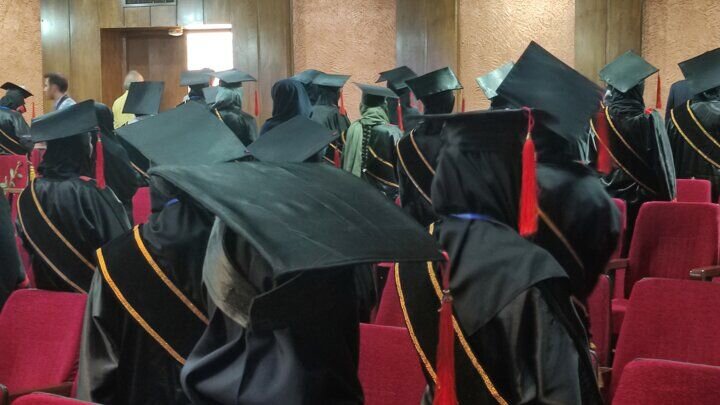Attracting 320,000 intl. students by 2026 on agenda

TEHRAN- The Ministry of Science is planning to increase the number of international students to some 320,000 from currently around 100,000 by 2026, Hashem Dadashpour, the head of the Organization of Student Affairs, has said.
“There was an increase in the number of international students over the sixth National Development Plan (2017-2021). The seventh development plan (2022-2026) has also put increasing the figure to around 320,000 on the agenda,” he explained.
“Strengthening scientific authority, developing public diplomacy, and expanding the Persian language are the three main reasons for attracting international students,” Dadashpour said, IRIB reported.
He went on to say that the principle of attracting international students is a major strategy and plan for the Ministry of Science.”
Dadashpour stressed that the international campus of universities is the center of attracting international students and managing their affairs, but all university vice-chancellors are responsible for international students as much as Iranian students.
He pointed out that "International students' attendance at the cultural events of the university helps Iranian students to get more familiar with them and their culture."
"Also, international students can have their own cultural and artistic organization."
The infrastructure of the university, educational and cultural planning, and the university staff should all attract students in a way that gives them a different positive view of Iran as they get back home.
The deputy head of the student affairs organization considered it important to provide suitable centers and platforms for teaching the Persian language to international students in universities.
Dadashpour stated, “Learning the Persian language is an important precondition for studying in Iran.”
The 61st meeting was held with the motto of cultural transformation of the university and smart governance.
Foreign students from 119 countries
Currently, international students from 119 countries are studying in Iran, IRNA reported.
Shortening the processes of providing services to international students, such as issuing visas and residence permits, offering employment, banking, and transportation services, and benefiting from cultural advisors who are currently based in 81 countries, as well as ambassadors in different countries, are among the capacities which can be used to attract more international students.
The Ministry of Science is planning to upgrade an online system titled “Study in Iran” in order to familiarize foreign students with universities as well as the conditions and costs of living in the country.
For the time being, the system is operating in four languages Persian, English, Arabic, and Chinese, Dadashpour said in June.
“We plan to add three more languages, namely Russian, French, and Spanish in the next few months,” he added, IRNA reported.
The system actually plays the role of an intermediary between universities and applicants for studies in Iran, Dadashpour said, noting: “We briefly introduce the universities with the license to admit international students, and at the same time, the applicants can be connected to the desired university through special links.”
This possibility is also provided for the applicants to study in Iran to register and send the admission application while being familiarized with the cultural and academic situation in Iran, and at the same time to learn about the experiences of international students in the country, he highlighted.
Also, an exhibition will be held from November 14-19 with the aim of introducing the advantages of studying in Iran for international students, he said.
“The first section of the exhibition is related to Persian language teaching centers, and the second section is related to private institutions for attracting international students and institutions of target countries.”
“The third section is dedicated to activists who are interested in attracting international students to Iran. The fourth section is related to scientific and technological achievements of science and technology parks and knowledge-based companies, and finally, the fifth section is related to the cultures and customs of foreign countries.”
MT/MG
